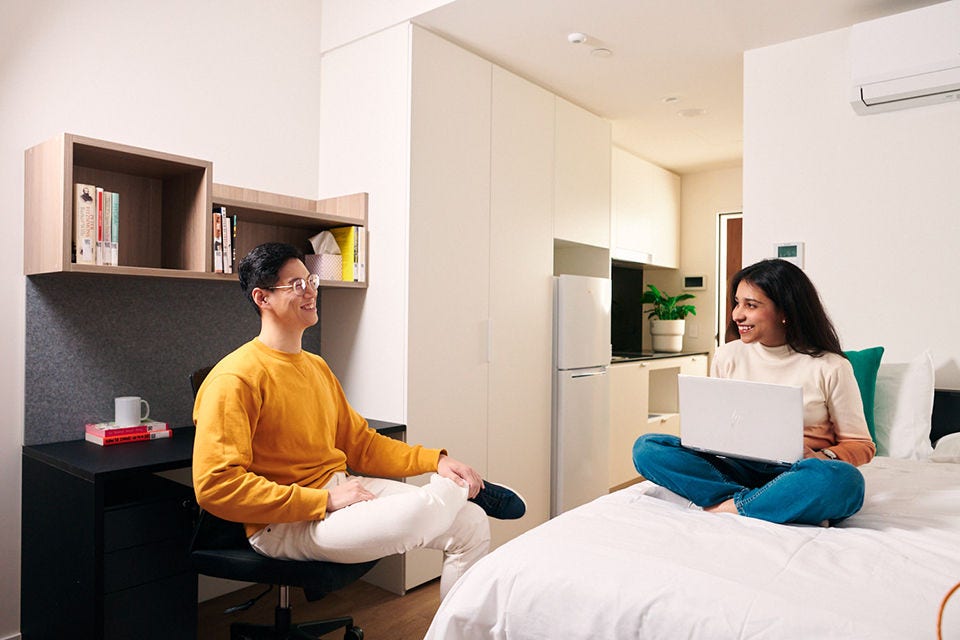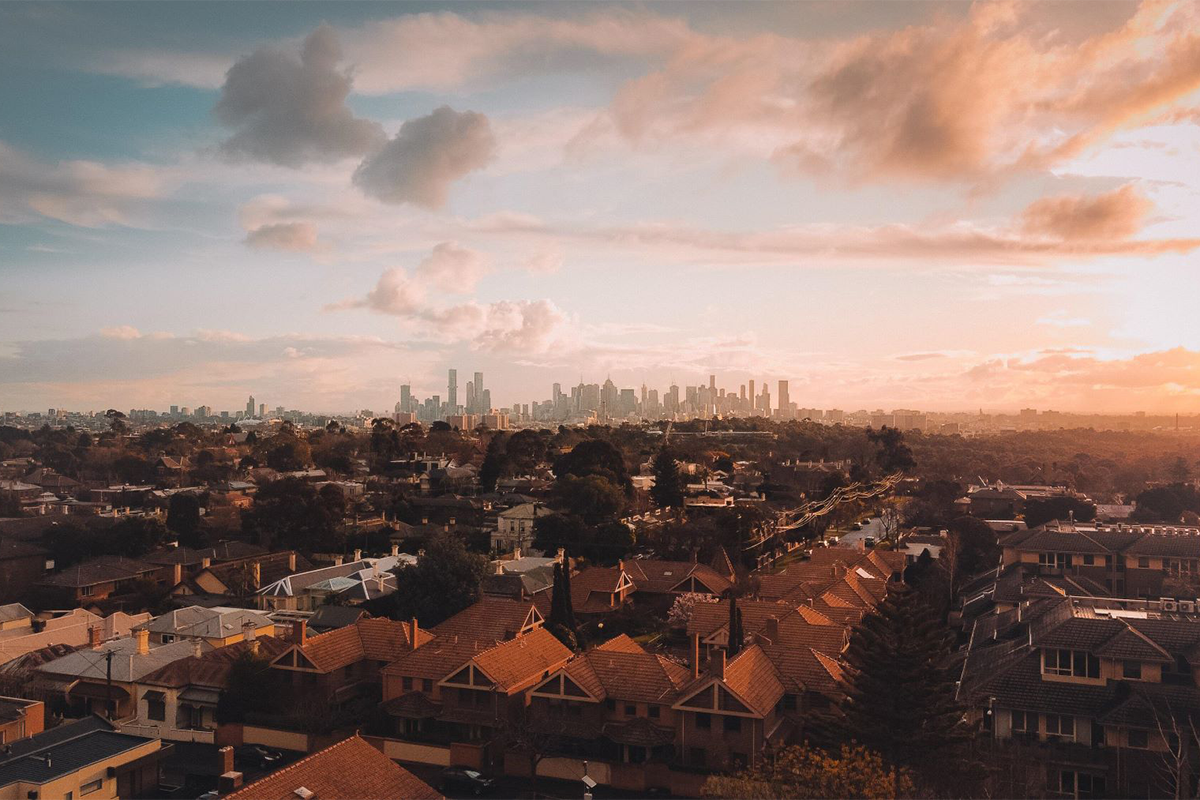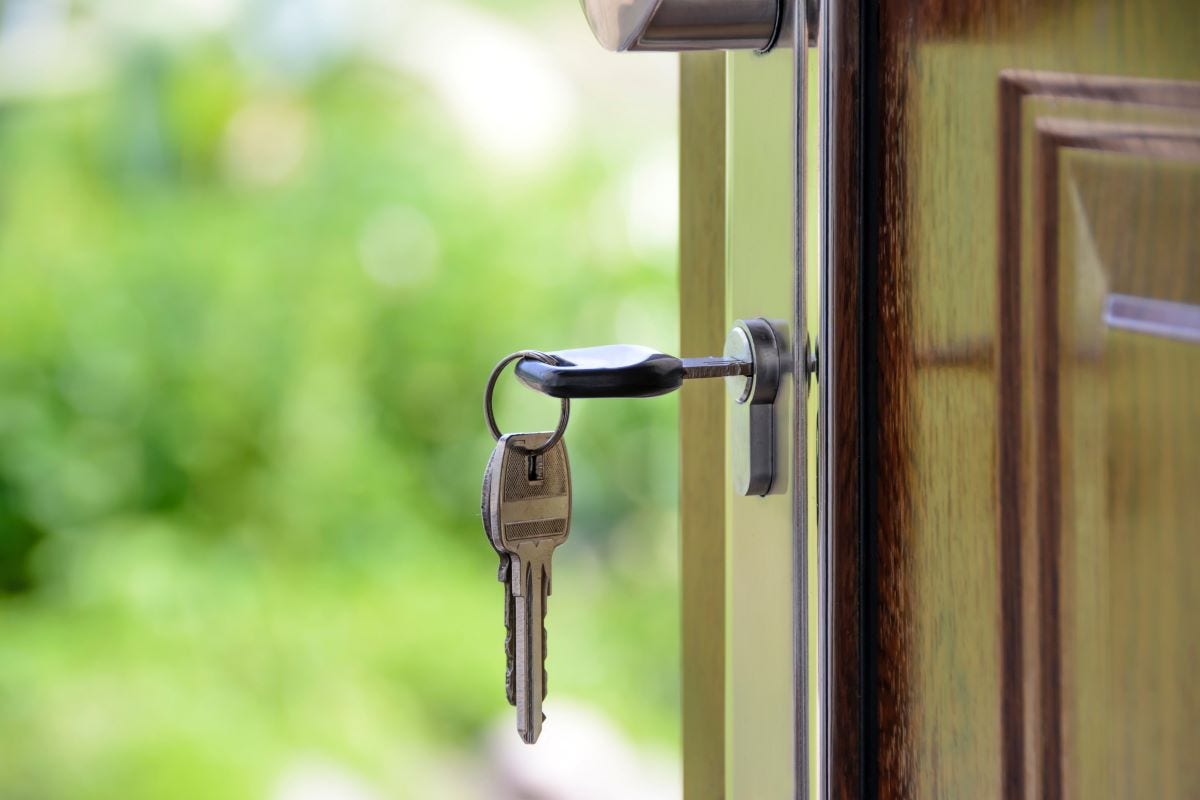Types of accommodation
Short-term accommodation
Many international students stay in short-term accommodation while they become familiar with their new city and meet potential housemates, including hotels, hostels and other temporary options. Your education provider in Australia for help may be able to offer advice and support in finding appropriate accommodation.
Renting a house or apartment
You can rent or ‘lease’ a property by yourself or with friends. This can be done through a real estate agent or privately (renting directly from a landlord/owner).
It is common for international students to live with other students in order to make living costs more affordable. There are often rental and share house options posted on boards at your education institution or at sharehouse websites such as Flatmate Finders or Flatmates.com.au.
If you rent a house or apartment, you will need to pay a security deposit or ‘bond’ (which is usually equivalent to four weeks’ rent). You will also need to pay some rent in advance (usually to cover the first four weeks of your tenancy). This money is held by the relevant state government department in every Australian state or territory.
It is important for you to know your rights before you start looking for a rental or sharehouse.
For more information on renting, visit our blog post, Accommodation tips: How to find the right house and housemates for you.
Managed student accommodation
Managed (or ‘purpose-built’) student accommodation are residences designed and built specifically for students. The options range from private studio apartments to shared rooms with communal areas, activities and facilities.
These residences are usually located close to major education providers or near public transport. Bills such as electricity and internet are generally included in the advertised rental cost, so the cost of living should not change much from month to month.
For a list of accredited managed student accommodation, visit the NPAS website.
University-managed accommodation
Many universities manage designated accommodation and facilities very near to campus for the exclusive use of their students.
University-managed accommodation is usually fully furnished, with costs covering any bills (such as electricity, gas, water and internet) and integrated university-managed support services.
Contact your education provider to find out what accommodation options they offer.
Residential colleges
Residential colleges are usually located on university campuses, with managed accommodation and facilities just for enrolled students.
Many residential colleges are fully catered, with up to three meals provided each day. These colleges aim to foster a sense of community by offering student and academic support services, sports and cultural programs, and leadership development opportunities.
For more information, search your education provider’s website and contact the provider’s housing office.
Homestay
Homestay involves living with a local family in their home. This can be a good option for younger students who can enjoy all the comforts of a family home, while getting to spend time with their host family, often with meals and cleaning provided.
Education agents can help to make these arrangements, or you can contact homestay providers directly. Some independent businesses in Australia support homestay arrangements, but you will need to conduct your own research into these services and make your own arrangements. Some examples include:
- Global Experience
- Homestay Australia
- Australian Homestay Network
- All About Homestay
- International Homestay Agency (Melbourne only)
- Student Accommodation Services
- Study Vision
- Ozihouse
- Talkabout Homestay (Perth only)
- UoW College Australia (Wollongong only).
When choosing a homestay company, please ensure it offers accommodation that complies with the Australian Government Schools International (AGSI) Homestay Standards.
Accommodation for students under 18 years of age
For students under 18 years of age who will not be accompanied by a parent or legal custodian, their education provider in Australia must approve the arrangements for the student’s accommodation, support and general welfare. This is done when the provider issues a Confirmation of Appropriate Accommodation and Welfare (CAAW) letter.
Important considerations
Here are some factors to take into consideration when finding the right accommodation for you:
- Costs will vary depending on your chosen state, city, and type of accommodation. Use our cost of living calculator to get an estimate of your expenses and how they vary from state to state.
- Always confirm the total cost and any other expenses you may be required to pay, such as a bond as well as regular gas, water and electricity bills.
- Consider the distance of your accommodation from your campus and whether it is easily accessible by public transport, such as bus, tram or train.
Find out what shopping centres and amenities, as well as health, hospital and emergency services are located nearby.
Legal protection
Your legal obligations include:
- paying for your accommodation on time, and
- cleaning and looking after the property (including garden and pool if you have them).
Your legal rights include:
- feeling secure in your property, and
- that your accommodation is well maintained with working electricity and water.
If you have an issue with your accommodation, try to resolve the problem directly with your real estate agent, landlord or accommodation manager. Find out more in this Study Australia blog post.
If you are unable to resolve the issue directly, there are organisations such as tenants’ unions and consumer advocates that can help. Visit the relevant Fair Trading government agency in your state or territory:
- New South Wales: NSW Fair Trading and Tenants Advice & Advocacy Services NSW
- Queensland: Tenants Queensland and Residential Tenancies Authority
- Victoria: Tenants Victoria and Consumer Affairs Victoria
- ACT: Tenants’ Advice Service and Access Canberra
- Western Australia: WA Department of Commerce and Tenancy WA
- Northern Territory: Tenants’ Advice Service and Consumer Affairs Northern Territory
- South Australia: Consumer and Business Services (CBS) and Tenants Information and Advisory Service
- Tasmania: The Tenants‘ Union of Tasmania
There is always someone who can help. If you need support, ask your education provider for advice or visit your nearest study centre run by your local state or territory government.
Quality assurance and accreditation
Student Accommodation
The Student Accommodation Association (SAA) in Australia promotes quality accommodation provided for the exclusive use of students. The SAA overseas a National Property Accreditation Scheme (NPAS). When a property has this accreditation, it means it is being operated to a set of industry-led standards for the exclusive use of students with a focus on student safety and wellbeing. You can check the NPAS website to find accredited properties.
Homestay
If you're considering a homestay, ensure your provider meets the Australian Government Schools International (AGSI) Homestay Standards. Additionally, NEAS, a quality assurance body, evaluates homestay providers against a set of quality standards. You can explore a list of NEAS-accredited homestay providers here.






